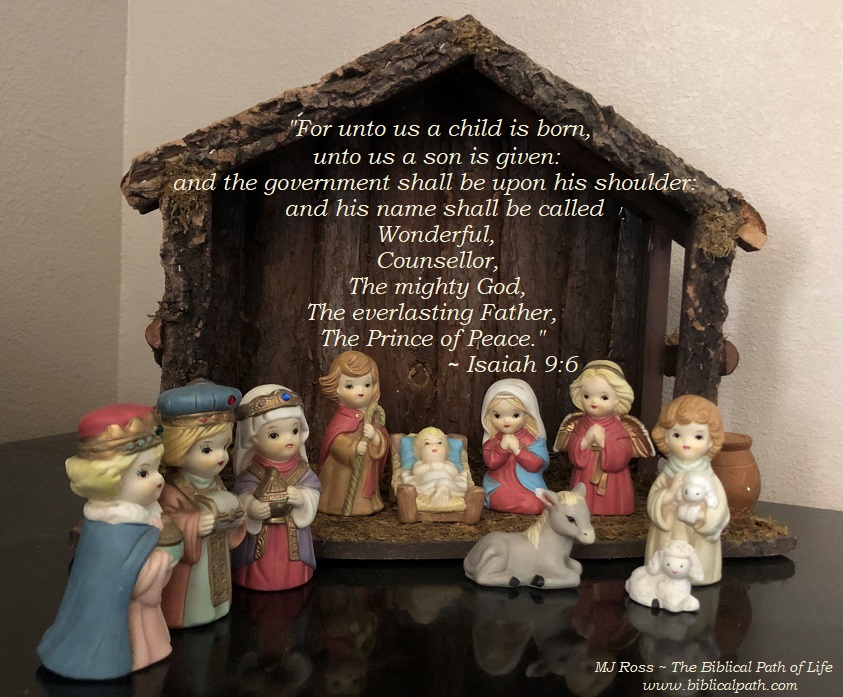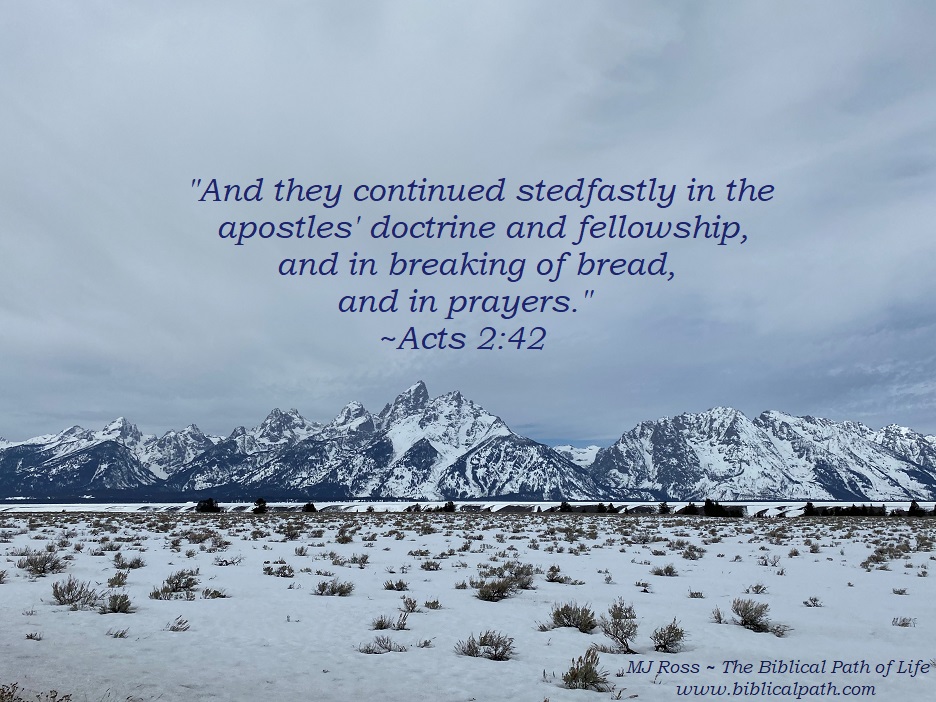
“For unto us a child is born, unto us a son is given: and the government shall be upon his shoulder: and his name shall be called Wonderful, Counsellor, The mighty God, The everlasting Father, The Prince of Peace”
Isaiah 9:6
It is Christmas time again. Time for decorations, gifts, Christmas parties, visits to family, and so many other events that we consider Christmas celebrations. However, often times we forget what it is we are really to celebrate during the Christmas season.
Most acknowledge that it is the birth of Jesus that we are to remember. Many even read the “Christmas Story” with family or friends. But have you ever taken the time to truly understand just who Jesus is?
We remember the prophets of old told of One who would come. “For unto us a child is born, unto us a son is given: and the government shall be upon his shoulder: and his name shall be called Wonderful, Counsellor, The mighty God, The everlasting Father, The Prince of Peace” (Isaiah 9:6). We even sing Christmas songs reminding us of this message. In that foretelling we are to understand, it is “The mighty God” who was to come. And He did. First, remember what the angel told Joseph in a dream in regards to Mary. “21. And she shall bring forth a son, and thou shalt call his name JESUS: for he shall save his people from their sins. 22. Now all this was done, that it might be fulfilled which was spoken of the Lord by the prophet, saying, 23. Behold, a virgin shall be with child, and shall bring forth a son, and they shall call his name Emmanuel, which being interpreted is, God with us” (Matthew 1:21-23). Next, remember what the angel told Mary. “31. And, behold, thou shalt conceive in thy womb, and bring forth a son, and shalt call his name JESUS. 32. He shall be great, and shall be called the Son of the Highest: and the Lord God shall give unto him the throne of his father David: 33. And he shall reign over the house of Jacob for ever; and of his kingdom there shall be no end” (Luke 1:31-33). Both of these declared that Isaiah’s prophecy would be fulfilled in Jesus.
After Jesus was born, we have record that the angels declared His birth to the shepherds who were watching their flocks by night (see Luke 2:1-20). They went to see the One who was “born this day in the city of David a Saviour, which is Christ the Lord” (Luke 2:11b). After seeing Jesus, they went and told everyone they saw. “And all they that heard it wondered at those things which were told them by the shepherds” (Luke 2:18).
Later, we read that wise men came from the east, followed a star, and asked, “Where is he that is born King of the Jews?” (Matthew 2:2a). How did they respond when they found Him? “And when they were come into the house, they saw the young child with Mary his mother, and fell down, and worshipped him: and when they had opened their treasures, they presented unto him gifts; gold, and frankincense, and myrrh” (Matthew 2:11).
We find many answers in the Bible as to who Jesus is. In describing Jesus, read the following verses:
- “In the beginning was the Word, and the Word was with God, and the Word was God” (John 1:1).
- “All things were made by him; and without him was not any thing made that was made” (John 1:3).
- “And without controversy great is the mystery of godliness: God was manifest in the flesh, justified in the Spirit, seen of angels, preached unto the Gentiles, believed on in the world, received up into glory” (1 Timothy 3:16).
- “Jesus saith unto him [Thomas], I am the way, the truth, and the life: no man cometh unto the Father, but by me” (John 14:6).
- “11. He came unto his own, and his own received him not. 12. But as many as received him, to them gave he power to become the sons of God, even to them that believe on his name” (John 1:11-12).
However, when specifically asked by Jesus, read what Peter understood. “15. He saith unto them, But whom say ye that I am? 16. And Simon Peter answered and said, Thou art the Christ, the Son of the living God” (Matthew 16:15-16).
When one really wants to know Jesus, the heart is touched. “8. But what saith it? The word is nigh thee, even in thy mouth, and in thy heart: that is, the word of faith, which we preach; 9. That if thou shalt confess with thy mouth the Lord Jesus, and shalt believe in thine heart that God hath raised him from the dead, thou shalt be saved” (Romans 10:8-9).
The shepherds understood Jesus was a Saviour, Christ the Lord.
The wise men understood Jesus was to be King of the Jews, and they worshipped Him.
Thomas learned Jesus is the way, the truth, and the life. No one goes to the Father except through Jesus.
Many Jews did not receive Jesus, but those who believed upon Jesus became sons of God.
Peter understood that Jesus was the Christ, the Son of the Living God.
But, most importantly, who is Jesus to you, today?
Have you believed, by faith, that Jesus is the Son of the Living God?




